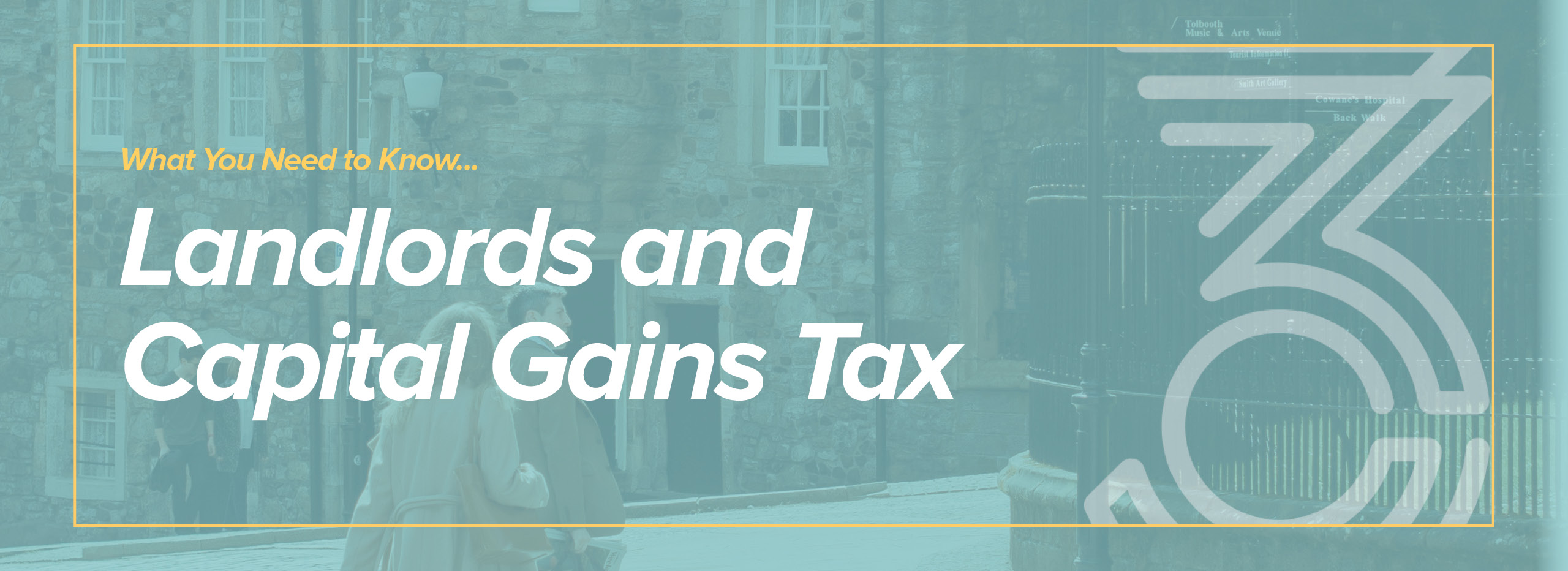This post is designed to help you understand the Capital Gains Tax implications of selling residential property.
Capital Gains Tax (CGT) is levied on some assets which have increased in value when you sell or gift them. Buy-to-Let properties are classed as such assets and you should consider your liability to Capital Gains Tax when you sell a property.
Since 6 April 2020, those who sell residential properties in the UK and generate a liability to Capital Gains Tax have a period of 30 days to notify HMRC and pay the tax due. If not, HMRC may impose sanctions in the form of penalties and interest for non-disclosure and payment of tax liabilities.
The Rates of Tax
The ‘gain’ (often the difference between what you paid for the property and what you sold it for) is charged to tax at a rate which depends on your own income tax position.
Gains which, when added to your other taxable income, do NOT cause you to become a higher rate taxpayer will be charged at 18% for residential properties (10% for commercial properties). Gains that fall into your higher rate or additional rate band will be liable to tax at 28% (or 20% if non-residential), under current legislation.
Principal Private Residence Relief
Currently, if you sell your own main residence you will benefit from Principal Private Residence Relief, meaning that you will not be liable to Capital Gains Tax.
If you personally lived in a rental property for some of the time you have owned it, you may be able to benefit from Principal Private Residence Relief. This means that the proportion of time you lived in the house as your main residence may be used to reduce the amount of Capital Gains Tax due.
Deductions, Exemptions and Losses
Costs that can be deducted from the gain include the costs of buying and selling (e.g. solicitors’ costs, stamp duty, valuations) and the cost of improvements which were made to enhance the value of the property (for example upgrading the kitchen or adding an extension). Costs associated with the general upkeep of a property are unlikely to be permitted, however, these may be deductible for income tax purposes.
Individuals have an annual exemption that can be used to offset some of the capital gains. In the current tax year, this exemption is £12,300 per person. This means that the first £12,300 of gain is not charged to tax. If you own a property jointly with one or more people, all owners may be able to use their personal allowances to reduce any tax due.
If you have made a capital loss in the same year or previous years, you may be able to use this loss to reduce or eliminate any tax due.
Some investments are available which will allow you to defer any CGT due by rolling it into a new investment. This option can be explained by a qualified financial adviser should you wish to defer your tax liability.
TIPS
1. Timing: Consider when you are selling, have you sold another property in the same tax year? If so, you might have already used your CGT allowance. It may be that selling in a different tax year will reduce your liability to CGT.
2. Records: Keep records of costs incurred from the very first penny spent on a house. Don’t rely on your memory years down the line to work out what you have spent!
3. Photographs: If you are enhancing the value of a property, consider taking pictures along the way. This will provide a visual ‘audit trail’ regarding the value you have added.
You should always seek professional advice regarding your own circumstances.
Please Note: The above is based on Three Counties Ltd’s understanding of current tax legislation. HMRC rules, tax rates and allowances are subject to change.
If you wish to discuss the contents of this blog post please contact corryn.wild@three-counties.co.uk or telephone the office on 0191 230 3034.
Disclaimer: The above content does not constitute financial advice. Your circumstances may differ from those outlined and you should seek advice which is relevant to your own situation.


